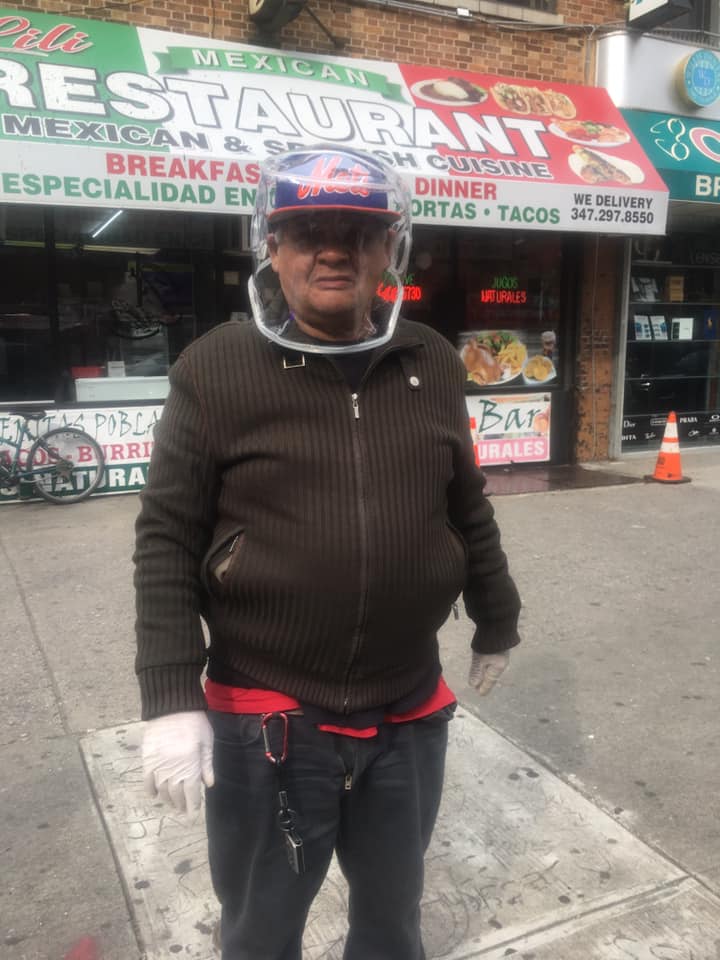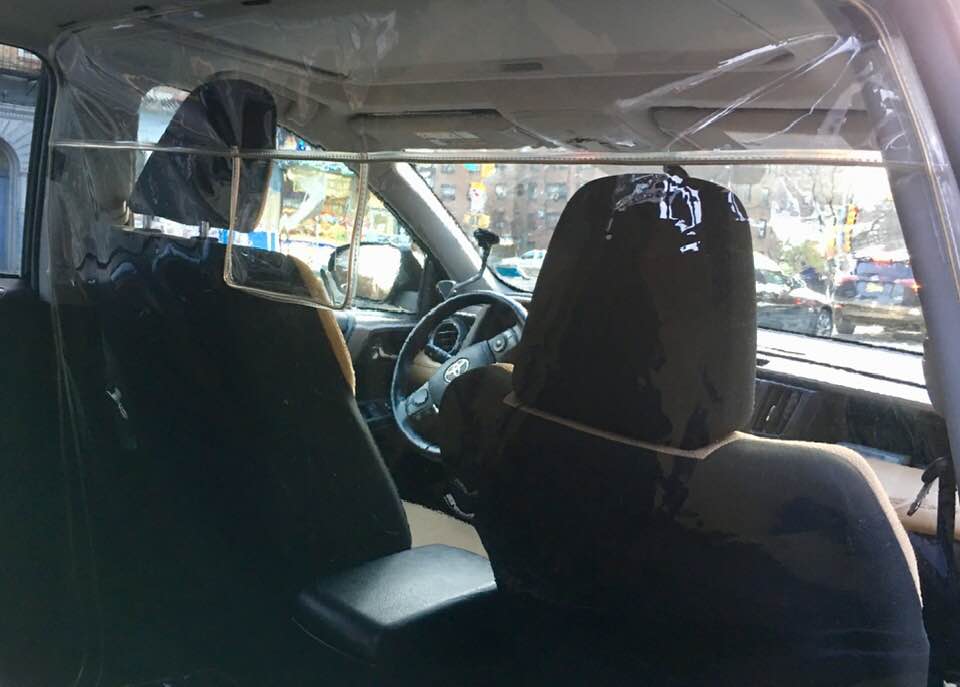Esteban Estévez, 49, learned his skills as an upholsterer at age 16, recently arriving in the United States from Puebla, in Mexico’s central highlands, where he is originally from. Over the years he set up his own business in the Bronx of New York.
The pandemic forced him to stop, according to the Associated Press, but he had to keep paying the bills: the $6,000 a month rent for the premises, the $1,400 a month rent for his apartment where he lives with his wife and youngest daughter.
While the coronavirus was spreading in the city, the epicenter of the contagion in the United States, Estévez turned his production around. He converted one of his commonly used upholstery materials, the plastic that he uses to line the tables of dentists offices, into raw material for virus protection products, AP continues.
Heriberto Paredes reported for LadoB that Estévez started this turnaround of the business with individual, transparent head protectors with two holes at ear level. He calls them “caps.” He made them with delivery and messenger workers in mind, who are at high risk of infection in this pandemic.

“I saw a video in which a doctor was explaining that when you talk to someone you practically bathe their face in saliva. The only thing that can protect us from this is what I invented,” Estévez told the journalist.
It turned out that the greatest demand came from supermarket cashiers, not only from the area, but also from neighboring New Jersey and Connecticut.
Then the taxi drivers arrived. Estévez began installing dividers made of the same plastic between the driver’s seat and the rear seats, where their customers usually go. The upholsterer sews the dividers first on his premises and then installs them in the cabs with pins and velcro.

According to the Associated Press piece, Estévez takes eight taxis a day, with more than an hour of work for each of them. He charges $60 per head.
In front of his shop, there is a line of taxi drivers who have heard about Estévez’s product by word of mouth. New York cabs are now his main customers.
Heriberto Paredes reports that there have been thousands. Estévez tells him that his work day has been extended: he sews the plastic until 11 p.m. and sometimes spends the whole day installing dividers; taxi drivers pick him up at his house at 7 a.m. and take him home at 10 p.m.
“I’m very busy. I do everything by appointment. And I’m calling friends to hire them to help me but there’s a fear of working,” he told the Associated Press.
The coronavirus pandemic and Covid-19 have hit Latinos and African Americans hardest in the United States. Estévez does not want to put at risk workers he could count on, according to Paredes’ piece for LadoB, because they are also older and more vulnerable.
“My family tells me it’s very risky but they need me to work and the taxi drivers need me too. Some of them bring me breakfast. A taxi driver dropped off some ginger tea for me because she says I have to take care of myself. But I’m worried, I have two premises and I have to keep paying the bills that come in and the rent.”
With this turnaround in his business, Esteban Estévez has achieved a stable income, although less than what he was receiving before the pandemic. He now earns about $400 a day, but with the purchase of materials he gets $250 to $300 net, the AP reports.
According to this article, Estévez is wondering if in the future he will add this item to his furniture upholstery business, and if he will be able to do both. “It will depend on what the taxi drivers want.”
All photos were taken from Esteban Estévez’ Facebook account
